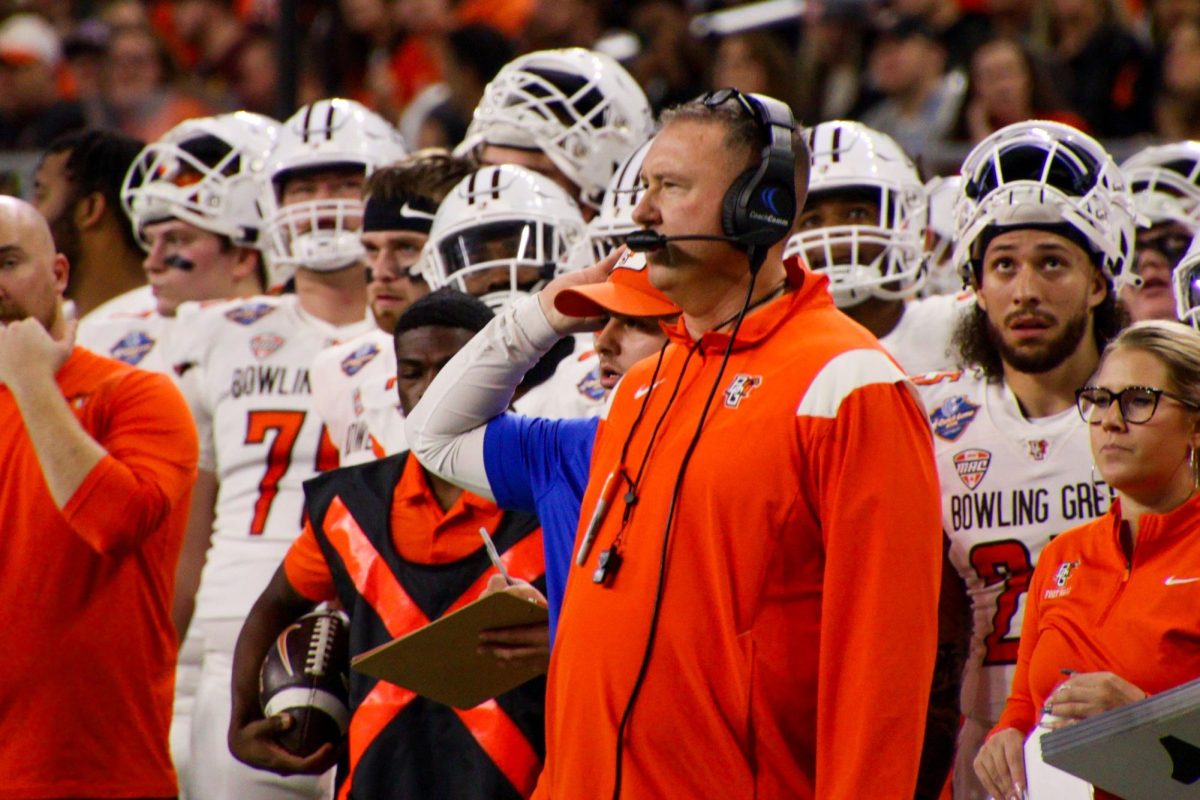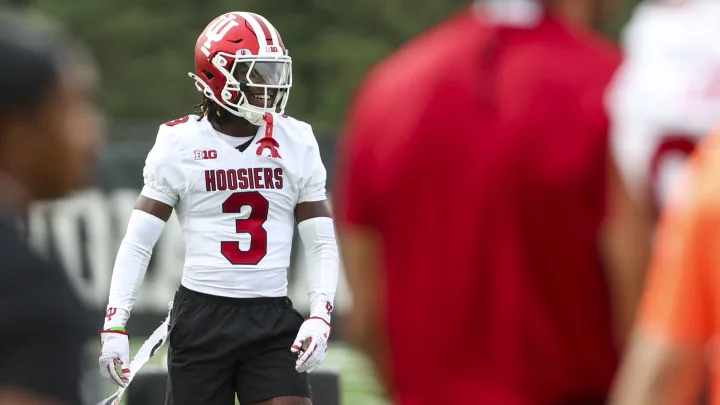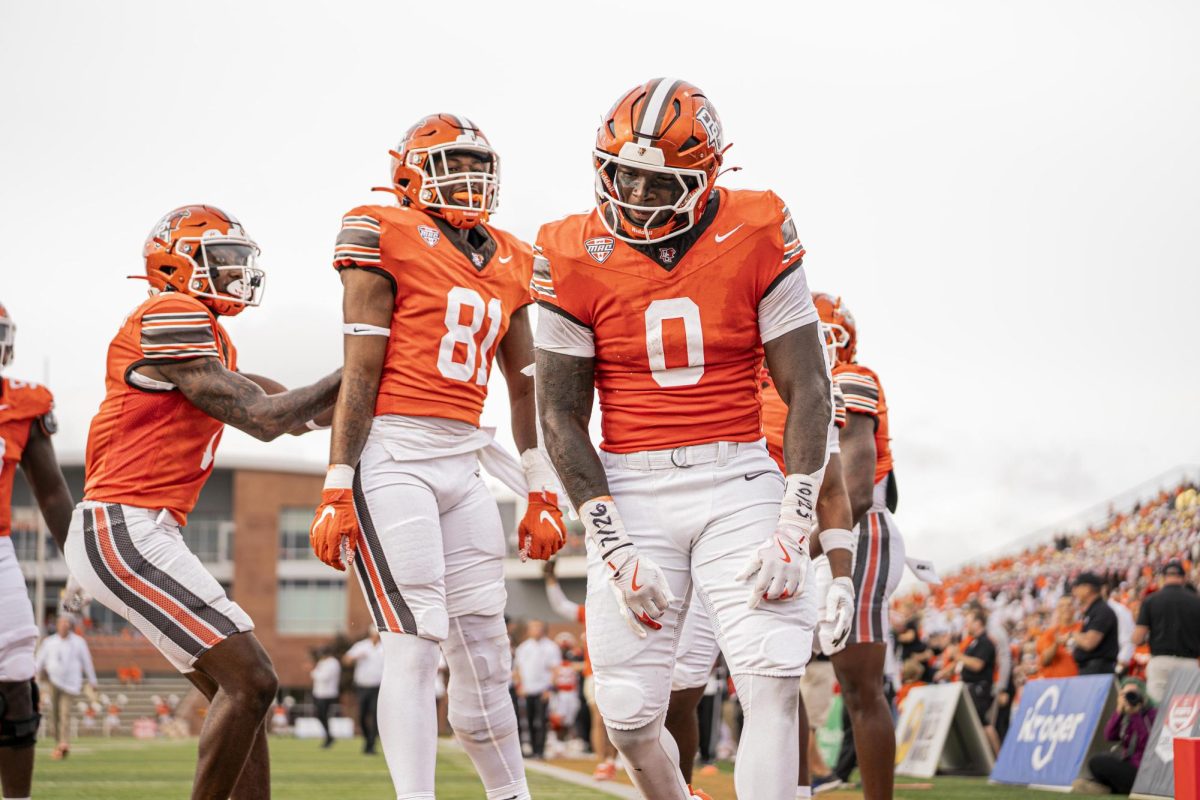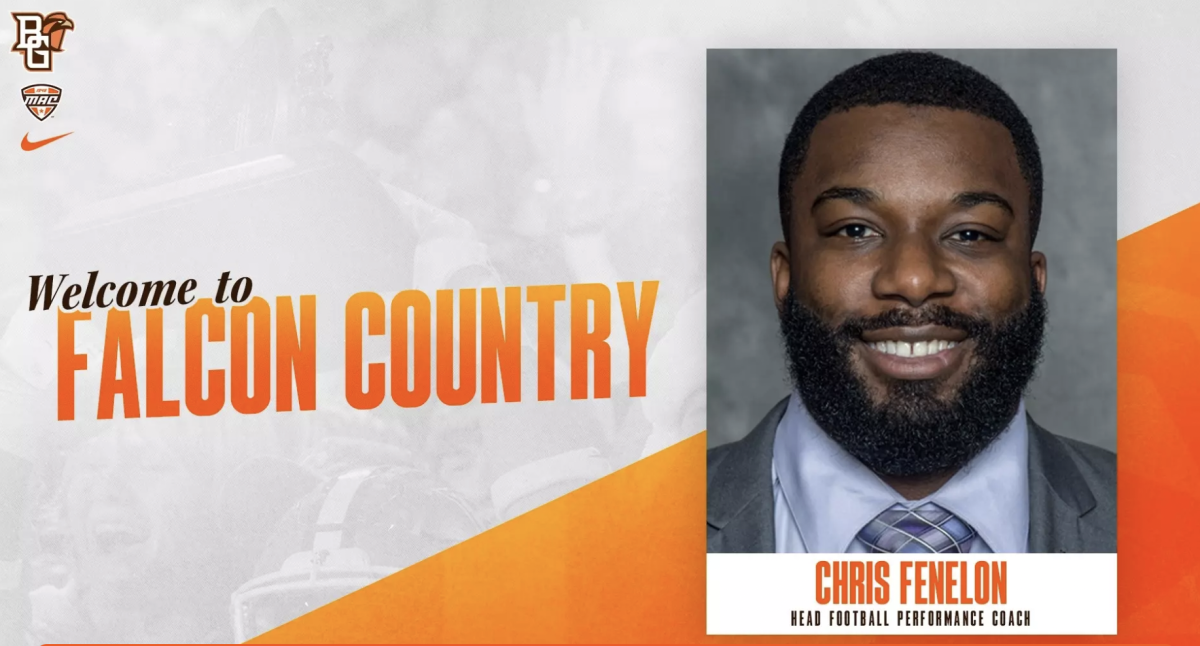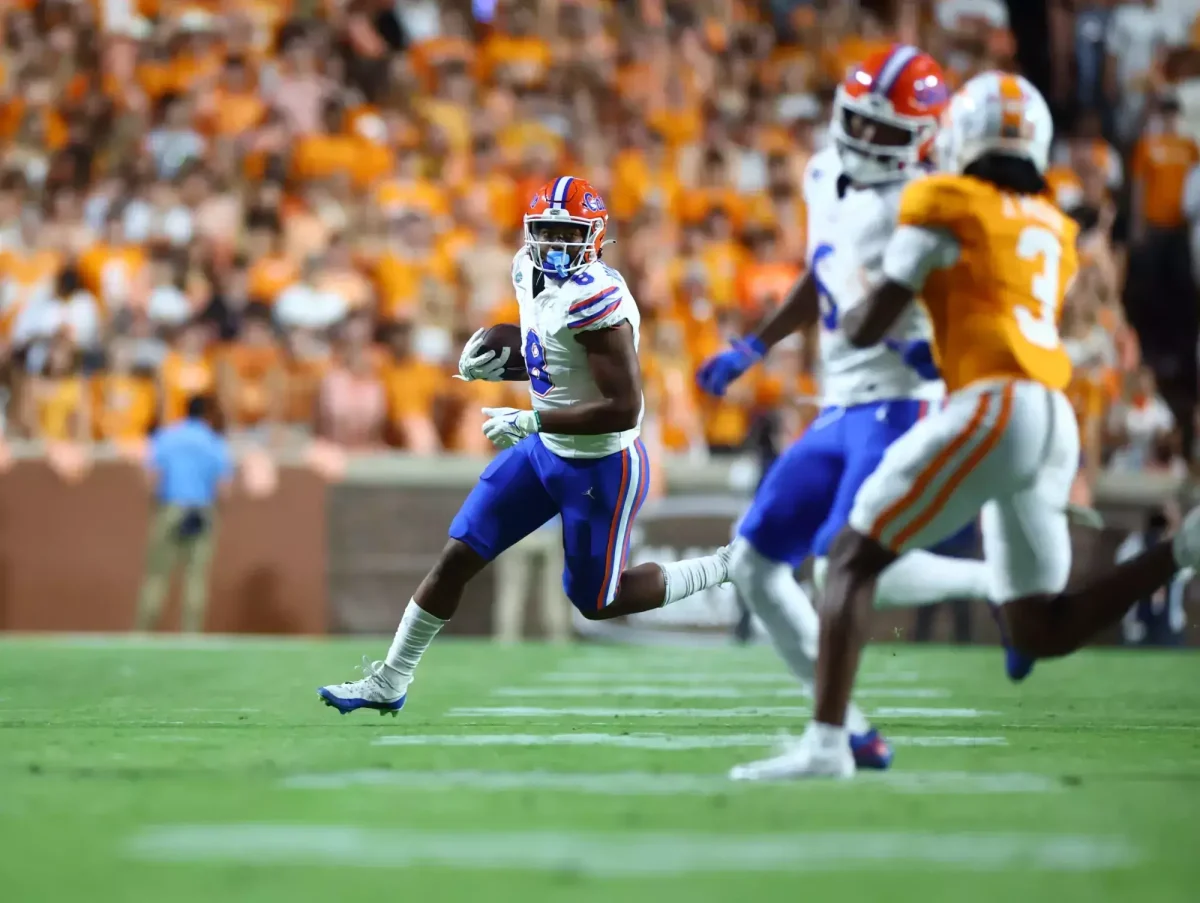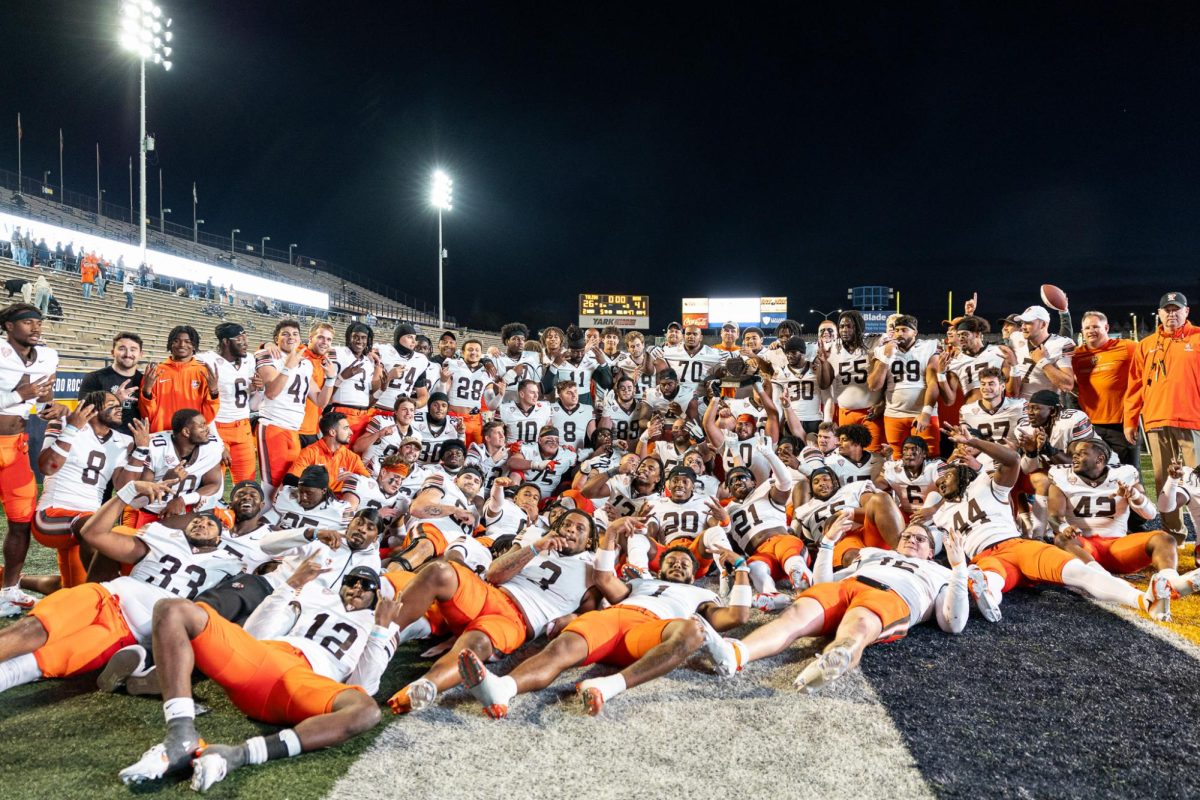The three finalists for the Fred Biletnikoff Award will be announced tomorrow, and BG quarterback Tyler Sheehan and coach Dave Clawson will be ‘shocked’ if Freddie Barnes isn’t on that list.
‘I’ll be shocked if he’s not on that list,’ Sheehan said. ‘And I’ll be more shocked if he doesn’t win it.’
Other leading candidates for the award include Notre Dame’s Golden Tate, Texas’ Jordan Shipley and Kansas’ Dezmon Briscoe, but Barnes has more receptions, receiving yards and receiving touchdowns than all three.
‘Based on the year he’s had and the other people up for the award, I would be shocked if he’s not in the final three,’ Clawson said. ‘He’s clearly in the top three of that group, and in my estimation, the top one.’
If the voting went strictly by statistics, Barnes would be No. 1 in everybody’s book, but since strength of schedule is one of criterion voters consider, Barnes is not a clear-cut No. 1 choice.
While BG has played a tough schedule (53-48), Texas (54-46) and Notre Dame (57-47) have seen better opponents, but all three teams have played two teams that were ranked in the Associated Press poll the day they battled. Kansas’ opponents have a 45-48 record, and the Jayhawks will face their first ranked team this weekend against Texas.
Leadership is also a criterion for voters, and Barnes hasn’t been afraid to wear his emotion on his sleeve, saying several times after losses there were things he could have done better to help the team win.
He also leads his team on the field, as he almost has more receptions (117) than BG’s leading rusher Willie Geter has attempts (133). Shipley has 81 catches, which are more than the 74 carries the team’s leading back has, but the Longhorns have run the ball almost 100 more times than BG.
Tate has far fewer catches (74) than his leading rusher (118 carries) and Bricoe isn’t even the leading receiver on his own team, as his 65 catches trail Kerry Meier’s 83, giving Barnes the edge in leadership as it relates to in-game performance.
But no matter what the committee uses to determine its three finalists, the always-humble Barnes said he isn’t going to worry about it, knowing he can’t control what happens.
‘I’ve seen [the stats] throughout the weeks past,’ Barnes said. ‘It’s all in the voters’ hands, really. I don’t know what will actually happen.’
Not that he has, but discounting himself because he plays for a mid-major program would not be a good argument.
While the award typically goes to a player from a BCS conference, three players from smaller universities have won the award since its inception in 1994.
Marcus Harris (Wyoming), Randy Moss (Marshall) and Troy Edwards (Louisiana Tech) won the award three straight seasons from 1996-1998. While no non-BCS player has won since, Ball State’s Dante Ridgeway was named a finalist in 2004.
And Sheehan thinks the year that Barnes is having should make him the next Mid-American Conference player to be a finalist.
‘He’s just having one of those years that come around every 10 or 15 years, and I’ve been lucky to be a part of it,’ Sheehan said.’


